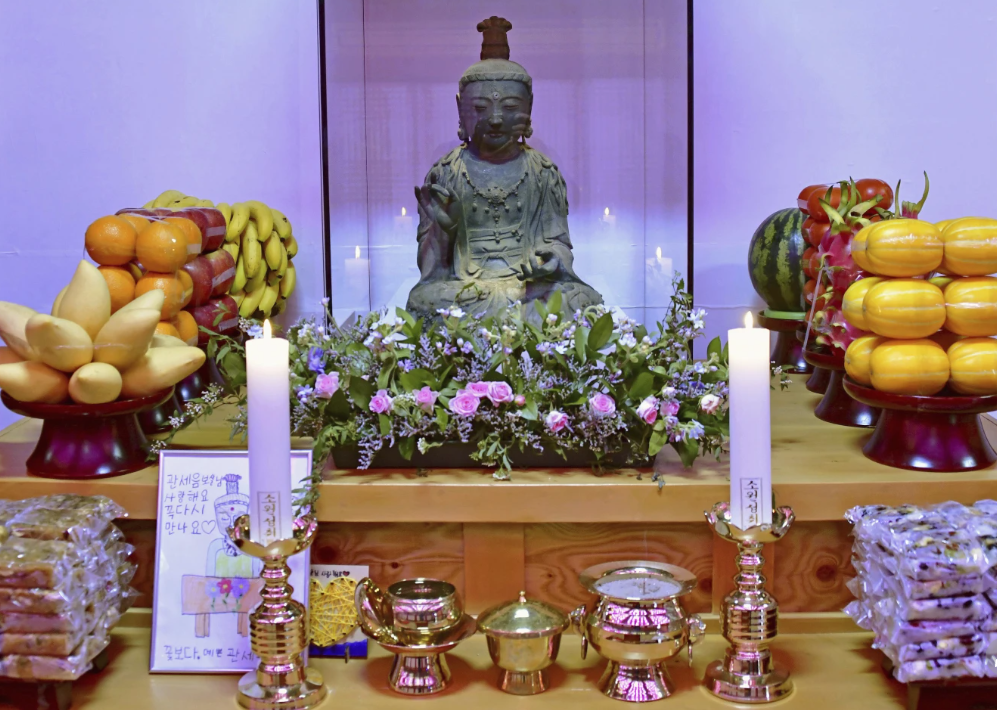A 14th-century Korean Buddhist statue, stolen from a Japanese temple nearly 13 years ago, was returned on Monday after a lengthy legal battle between Japan and South Korea over its ownership, which had further strained relations between the two countries.
As a truck carrying the statue in a wooden container arrived at Kannonji, a temple on Japan’s western island of Tsushima, dozens of temple members and local residents gathered by the roadside to applaud the return of the statue. After a ceremony at the temple, the statue is expected to be displayed at a local museum.
The gilt bronze Bodhisattva statue, worshipped for mercy and compassion, is depicted sitting and measures about 50 centimeters (20 inches) in height. It is designated a cultural asset of the region and was one of two statues stolen in 2012 by thieves who intended to sell them in South Korea. The South Korean government had already returned the other statue after it was recovered and the thieves arrested.
However, the Bodhisattva became the subject of a legal dispute when Buseoksa, a temple in Seosan, South Korea, filed a lawsuit claiming ownership. In 2023, South Korea’s Supreme Court ruled in favor of the Japanese temple, ordering the statue to be returned. Following the completion of legal formalities in January, the statue had been on a 100-day loan to the South Korean temple for a farewell exhibit.
Buseoksa expressed sadness over the statue’s return, with the temple’s chief monk, Woonou, saying that the temple’s followers were heartbroken. He argued that Japan had “plundered” the statue from Korea and deserved international condemnation.
Despite the tensions, the handover ceremony at Buseoksa was amicable, with both sides shaking hands. Sekko Tanaka, a former head monk at Kannonji, described the resolution as a “calm after a storm” and expressed relief that the dispute had been settled during his lifetime. He also hoped that South Koreans would visit Tsushima to learn more about the historical cultural ties between Korea and Japan, though he noted that security around the statue would be heightened going forward.
This return comes amid the backdrop of long-standing disputes between Japan and South Korea over Japan’s colonization of the Korean Peninsula from 1910 to 1945, though the two countries have cooperated on regional security issues in recent years.













